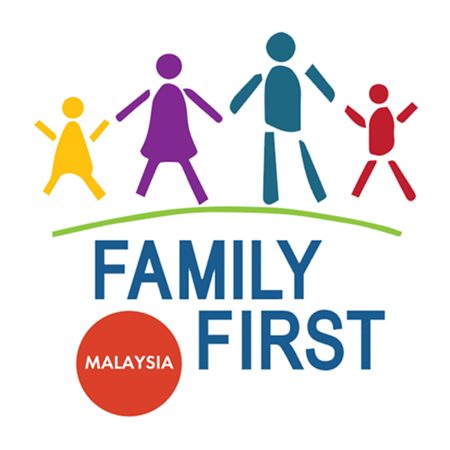
Do you know that setting up a family trust is no longer reserved for the super-rich? In recent years, more licensed trust companies are setting up shop in Singapore, targeting families with as low as $3M in household wealth. Moreover, Singapore is becoming an “old money” economy, with more young millionaires acquiring their wealth through inheritance[i]. However, I find most estate plans in Singapore too caught up with only passing down valuables and assets. If it does not also pass down values, an inheritance is meaningless. Here are seven ideas that can breathe life into your family trust.
“Think Lasting Legacy, Think Multi-Generation Family Trust”
If you have mistaken a trust as an estate planning tool only for the super-rich, think again. In the same way, a multi-generational trust is not exclusive to the ultra-rich, famous dignitaries or business tycoons.
Before we look at the seven ideas mentioned above, let me share a secret with you: the next multi-generation trust may just have been set up in your neighbourhood yesterday! If you are married with two children or more, try this exercise. Work out the combined estate of your spouse and yourself (assets plus total insurance payout). Multiply by (75 – average of both your ages). Divide that by 9. If that works out to about $5M, you have a good chance of qualifying for setting up a multi-generation trust!
1. Stewardship Mindset
An ownership mindset motivates a successful person to pass down wealth in a responsible way. But it is the stewardship mindset that drives him/her to think in multi-generational terms. A luxury watch advertisement says it all, “You never actually own a Patek Philippe. You merely look after it for the next generation.” Unlike our Western counterparts, Asians are less willing to put assets under trusteeship because of the wrong impression of losing control. A third-generation family member in Singapore recalled when she had just graduated 30 years ago, “My mother told me this… that I will not receive a single cent from the family trust unless I learn how to manage it”.
2. First-Generation Values
If I asked you to state the three values you feel are most important for your children, would you have a ready answer? When Singapore became a nation, because it lacked natural resources and was peopled by a highly ethical and religiously diverse society, our founding fathers identified “unity, resourcefulness, hard work and meritocracy” as key values needed for every successive generation of Singaporeans to uphold. These “first generation” values are enshrined in the ruling People Action’s Party Manifesto so that every generation emulates the first generation. Similarly, in your own family, once you have identified the family values to pass down, you can then intentionally and creatively weave in the ‘sticks and carrots’ in your trust to motivate the practice of such values. Try watching the 2006 American movie trilogy, “The Ultimate Gift”, for an idea how this could work.
3. Consume the Fruits, but Grow the Tree
Two farm brothers may fight over who gets the best fruit tree from their dying father, but they will argue less over the fruits. Over time, they would also learn the meaning of harmony, as enshrined in Chinese wisdom: harmony grows wealth. When quality family assets are not split up but consolidated in a trust, they represent a tremendous opportunity for long-term capital growth. Sound financial management of this capital can also yield good income for the family. A diversified investment portfolio of $100K growing at 4% p.a. will grow to $400K when one retires. However, if allowed to grow over 100 years of a trust tenure, it will grow to a whopping $6.4M. One of the oldest trusts in Singapore is the Sallim Talib’s Family Settlement set-up. It is estimated that the Arab merchant’s prime land property portfolio set up in 1937 is worth more than $1B at current valuation.
4. Create Shared Experiences and Decisions
A family does not have shared experiences only when it is united; it becomes more united with more positive shared experiences. A family trust is never intended to bind the hearts of begrudging members through assets. Yet, no family stays together by default. That would take intentional maintenance and relationship building. I frequently see in trust documents communal funds set aside for family bonding activities: annual family trips and reunion dinners. Several clients suggested conditions for their children such as having an X number of gatherings before they could receive their entitlement of business dividends. There are certainly provisions for distant communication or grace absence. The idea is to motivate, not to penalise. Another creative couple set up rules for their children to co-manage a small 20% ‘charity pot’ from which they were to research together which charities to support.
5. Stronger Marriages in the Family
As high as one in three marriages are at risk of divorce in Singapore. A total of 88% of millennial couples cite finances as a top reason for divorce[ii]. In a properly constructed family trust, if inheritances are consolidated (but separately run from individual household finances) and income is only used as a lifeline and not as a free handout, to enrich and not to provide, then a family trust fund offers some sort of a psychological safety net for every household under its covering. Should an unfortunate divorce happen, it can also ring-fence family assets against matrimonial division or family lawsuits. Obviously, a strong marriage depends on many factors, but using it to ease a young couple’s financial constraints in measured fashion is going to help rather than hurt.
6. Greater Posterity
How often have you heard of young couples who stop at one or two children, citing the reason as that it is “expensive to raise children in Singapore”? This concern is not unfounded: it may cost anywhere near $250K to raise a child up till university! Can the family trust fund help ease the expenses of a young household for say, the first seven years of the life of a newborn so that one parent can enjoy the option of being a stay-home mum/dad? Wouldn’t it be good if one heir who loves to have more children to receive more from the ‘Posterity’ pot? Several of my medium net-worth clients came up with a ‘family bursary’ to provide economic assistance to more disadvantaged members or couples with more children. The same psychological safety net provides stronger motivation for a procreation culture in the family. There is also a better chance of raising future stewards from a bigger family.
7. Generational Surplus, Sustainable Growth and Communal Blessings
Visualize your family trust as a life-boat that carries cargo containing both your values and valuables down the generational stream. You provide the first cargo on the boat to be allocated among your children and grandchildren. When it goes down to their children’s generation, the cargo continues to provide and nourish them; at the same time, it is also being “re-stocked” with new values and valuables created in your children’s generation. As the boat moves down from one generation to another, it provides and nourishes the next and is replenished by the previous. The financial rule here is clear: every generation always puts back into the boat more than what it takes out of it, i.e. surplus. Put financial stewardship, compounding capital growth and meaningful life insurance cover on every member, then add strong marriages and procreation motivation, and your family may just grow into a tribe or a clan, bigger and wealthier. With the right values and characters, it can multiply into a fleet of boats blessing the communities around them.
That is my vision – for more of such families to be established. I am always excited when I hear friends have moved on to their fifth or sixth or seventh child, and are building strong family values. In many ways, they have a better chance of leaving behind a lasting legacy and blessings for society, not because of their wealth, but because of their posterity.
Success is measured by the valuables we accumulate in our lifetime. Significance is measured by the values we pass down to the generations.[iii]
About the Author: Derek Liang is currently a Business Unit Head with one of Singapore’s largest financial advisory firms. Prior to that, he headed one of its largest units and was responsible for developing specialized capabilities in wealth management solutions for the firm.
With 10 years of advisory and training experience, Derek also diligently serves his clients from senior professionals to business owners. His hard work and dedication have won him several awards in the Trust Category of the Rockwills Group of Companies, the largest network of estate planners in Malaysia and Singapore. Derek has spoken at various organisations such as Standard Chartered (Malaysia), NTUC Club, CPF Board, Academy of Principles (Singapore), Republic of Singapore Navy, Firmenich Asia and Ricoh (Singapore) on estate planning and setting up a family trust. His workshop on “Values-Driven Family Trust” has empowered hundreds of participants to leave a lasting and meaningful legacy.
Derek is a Certified Financial Planner (CFP®) and an Affiliate of the Society of Trust and Estate Practitioners (STEP®). He sat on the Editorial Board of the Financial Planning Association of Singapore (FPAS) and has contributed several articles to the Financial Planner magazine on estate planning. He graduated with a First Class Honours in Electrical and Electronics Engineering from NTU and has a Post-Graduate Diploma in Christian Studies from TCA College. Derek is married to Ms Lynne Tan with three children.
ENDNOTES
[i] http://www.straitstimes.com/business/economy/republics-standing-attracts-old-money-says-report
[ii] https://www.journalofaccountancy.com/news/2016/feb/money-troubles-mean-relationship-troubles-formillennials-201613866.html
[iii] Deuteronomy 4:9; Psalms 78:6
Reposted from old website 4 March 2018




